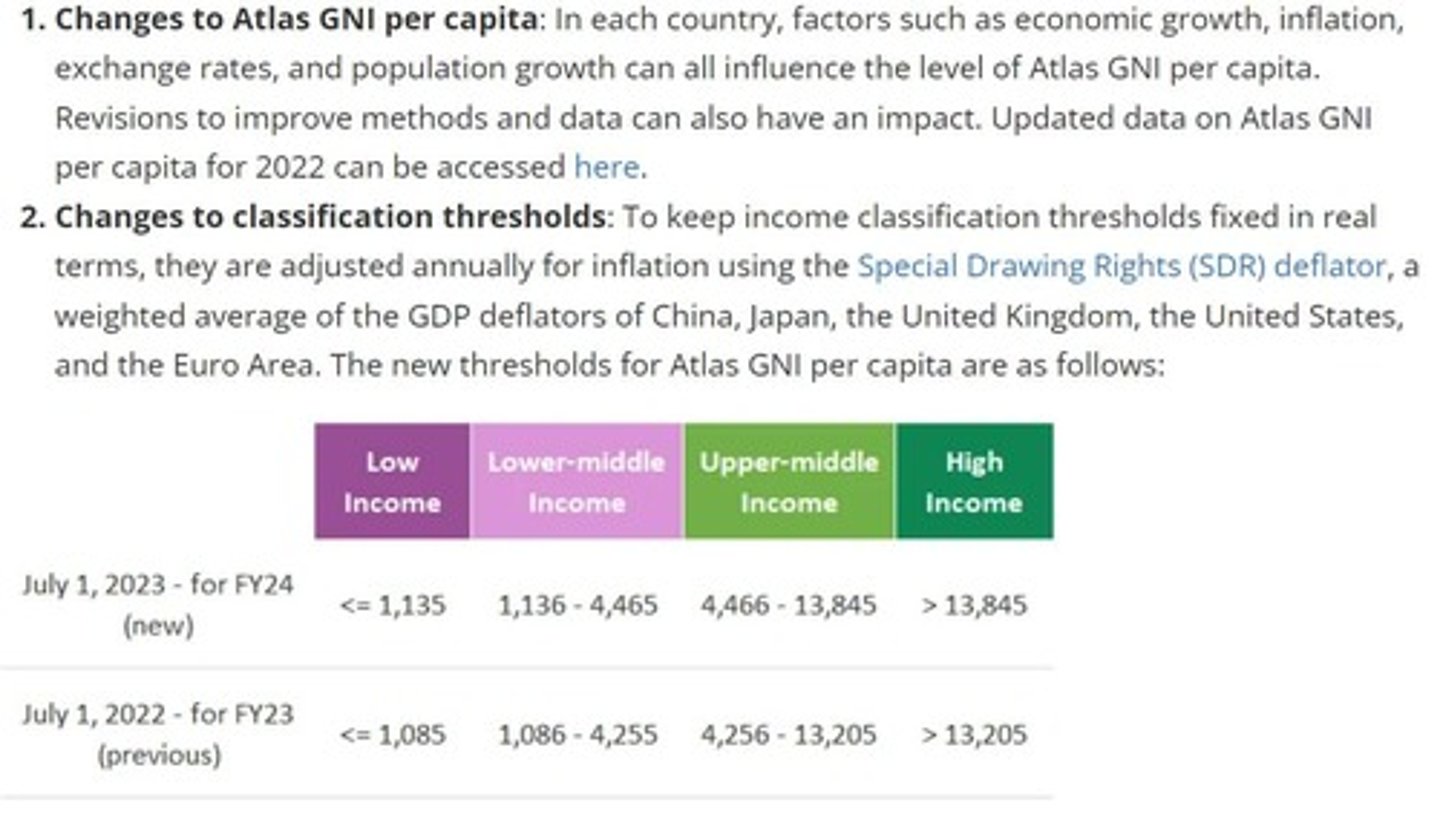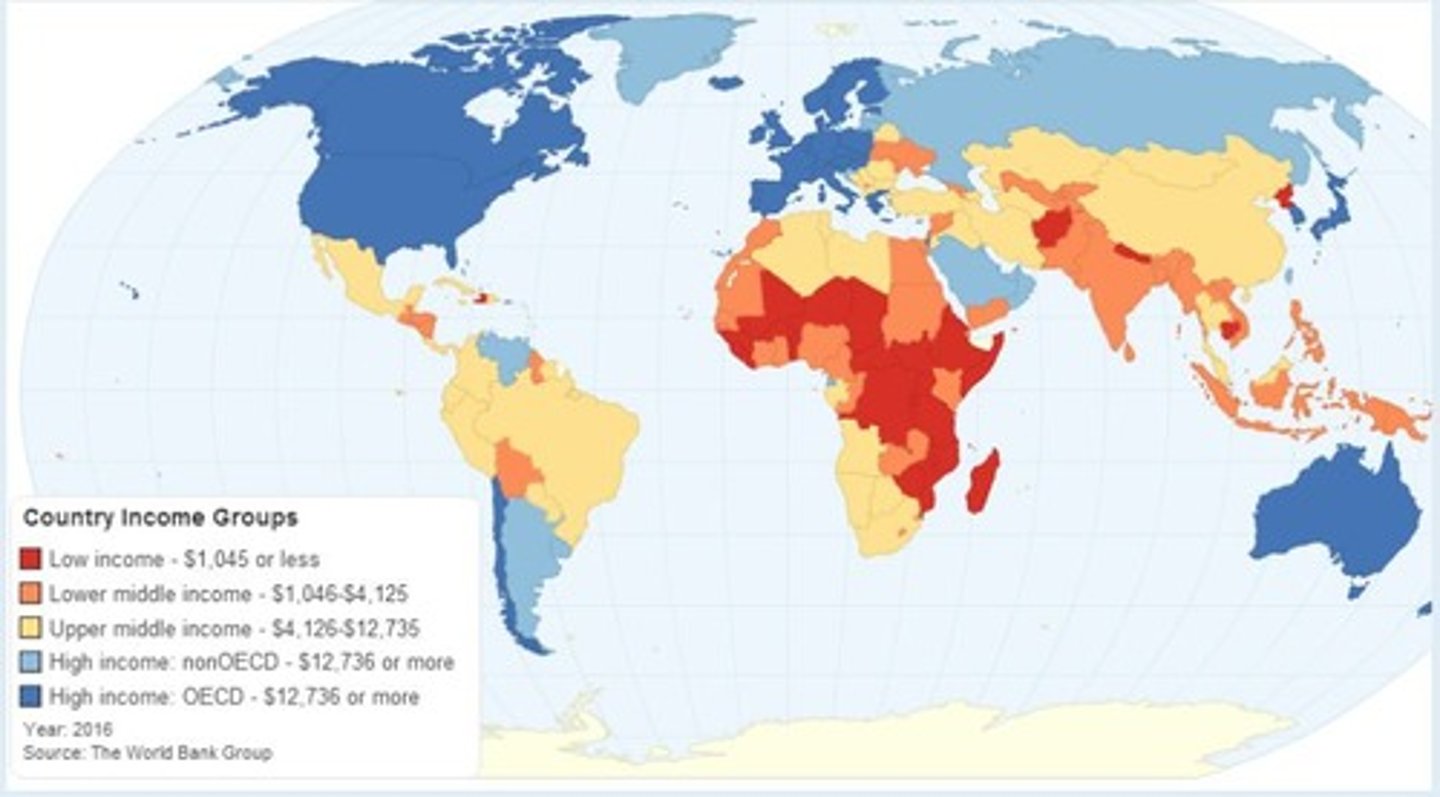Global Patterns and Classification of Economic Development in IB Geography
1/20
There's no tags or description
Looks like no tags are added yet.
Name | Mastery | Learn | Test | Matching | Spaced | Call with Kai |
|---|
No analytics yet
Send a link to your students to track their progress
21 Terms
What is development?
The process of improving the economic, social, and political well-being of a country.
What is Geographic Development?
The study of how geographic factors influence the development of regions and countries.
What is Economic Development?
The improvement of economic well-being and quality of life through economic growth and structural change.
What metrics can be used to classify economic development?
Metrics include Gross National Income (GNI) per capita, Human Development Index (HDI), and poverty rates.
How can countries be ranked based on their development?
Countries can be ranked using economic terms like income levels and GNI, and non-economic terms like health and education indicators.
What significant trend occurred regarding Low-Income Countries (LICs) from 1994 to 2014?
The percentage of people living in LICs fell by 80%, from 3.1 billion in 64 LICs to just over 600 million in 30 LICs.
Which countries moved out of the LIC category due to economic growth?
Bangladesh and Kenya.
What was Norway's income change from 1994 to 2014?
Norway's income rose from US$26,010 to US$103,050.
Which countries transitioned from Upper Middle Income to High Income?
Argentina, Venezuela, and Hungary.
How is GNI per capita calculated?
By dividing a country's gross national income by its mid-year population.

What was the classification of countries in the 1950s?
Countries were classified as Developed and Undeveloped.
What classification system was used in the 1970s?
The 1st, 2nd, and 3rd World classification based on alignment with Capitalism or Communism.
What did the Brandt Report categorize in the 1970s?
It categorized countries into Global North and Global South.
What terms were used in the 1990s for economic classification?
LEDCs (Less Economically Developed Countries) and MEDCs (More Economically Developed Countries).
What classification was adopted in the 2000s?
The terms Developed and Developing countries.
What are the current classifications for the 2020s?
Low, Middle (Emerging Economies), and High Income.

What characterizes LEDCs in terms of agriculture?
High levels of agriculture, with 70-90% involved in subsistence farming.
What are common economic characteristics of LEDCs?
High underemployment, low income per person, and low investment in infrastructure.
What demographic trends are seen in LEDCs?
High birth rates, potentially dropping death rates, and high population growth rates.
What is a common issue regarding education in LEDCs?
High levels of illiteracy.
What type of governments are often found in LEDCs?
Unstable governments, often authoritarian or totalitarian regimes.